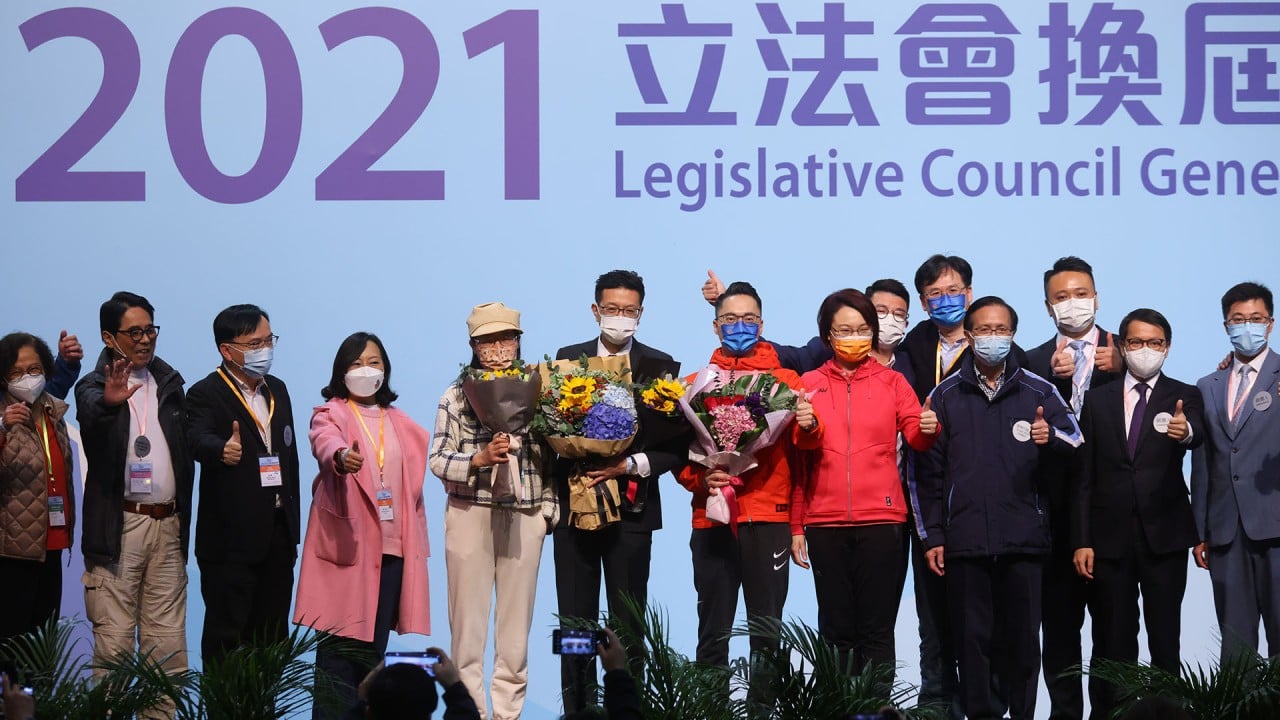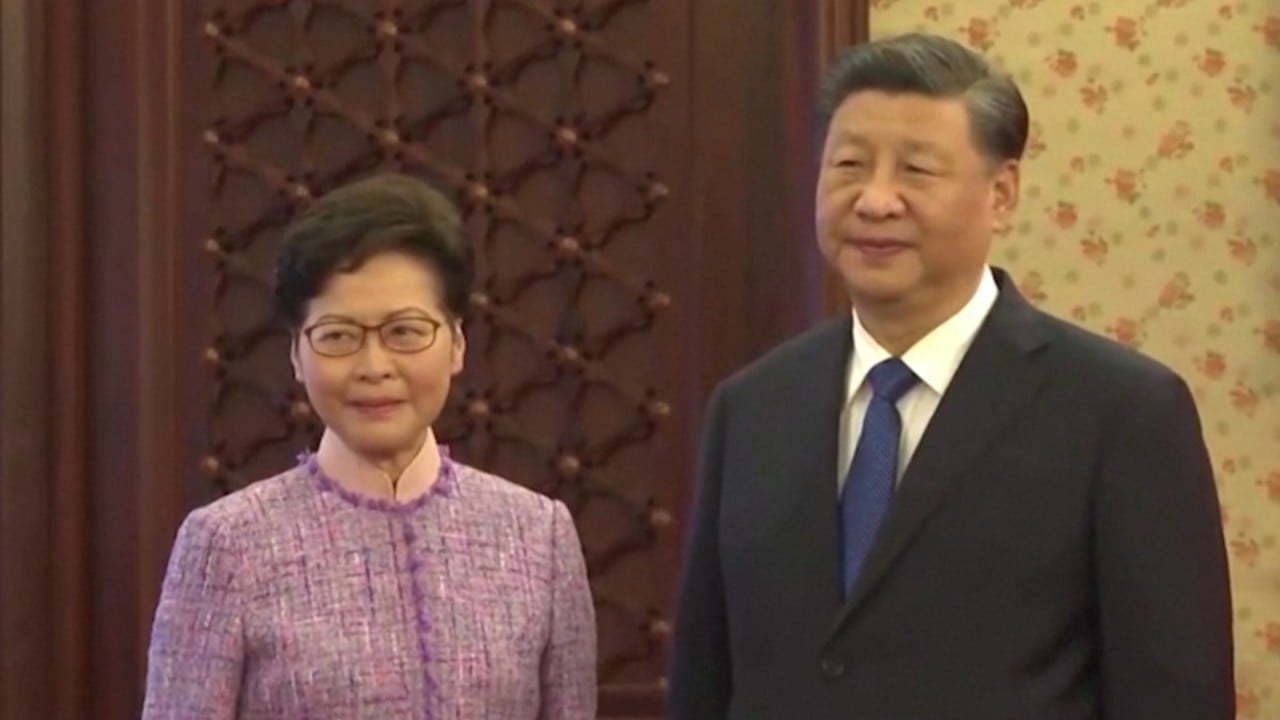
Pro-establishment bloc sets up team to guide messaging and coordinate work in Hong Kong’s expanded legislature
- Previously, just one convenor and a deputy were tasked with managing the camp’s legislative efforts
- But by adding 10 new positions underneath them, the bloc hopes to better steer the 90 lawmakers, many of whom have reported no political affiliation
Only 20 of the 90 newly minted lawmakers were invited to the unprecedented meeting with Xia Baolong, director of the State Council’s Hong Kong and Macau Affairs Office, in Shenzhen in Guangdong province on Wednesday.
Never before has a top Beijing official met legislators so soon after their swearing in. Xia laid out what the central government expected of them, which included being “firm patriots” who protected national security and defenders of the executive-led model of government.
The Beijing-friendly bloc only had a convenor and a deputy convenor in the previous Legco term who were responsible for coordinating the camp, which occupied 43 of the 70 seats.
But multiple sources confirmed the mechanism had now been expanded to a three-tier system consisting of up to 12 lawmakers. Apart from Martin Liao Cheung-kong who will continue to be the convenor, with veteran lawmaker Starry Lee Wai-king as his deputy, 10 other lawmakers were given new tasks under the pair.
That included a “monitor” and a “deputy monitor” each among the three sectors – the Election Committee constituency, trade-based functional constituency and the directly returned geographical constituency.
Nearly 2 in 3 Hongkongers unhappy with life in city, opposition survey finds
Within the Election Committee sector, four “row representatives” – a term borrowed from a classroom setting in which the student sitting at the front of the row is responsible for collecting classwork – had also been created to help coordinate the 40-strong new constituency stacked with Beijing loyalists as well as political novices.
Among the 13 lawmakers who held a press conference on Wednesday to talk about their meeting with Xia, eight were from the new convenor system, alongside Legco president Andrew Leung Kwan-yuen and four leaders of the major political parties.
A pro-establishment lawmaker who attended the meeting and did not want to be identified told the Post that eight of them were invited mainly because they were part of the convenor system.
“The central government wanted the experienced members to guide the newcomers, so that nothing goes wrong … People also expect the lawmakers to achieve results with efficiency,” he said.
Nine out of the 12 members of the convenor system were incumbents from major parties. The remaining three were Kowloon Central lawmaker Kitson Yang Wing-kit, Election Committee legislator Simon Lee Hoey, who works in a state-owned enterprise, and New People’s Party vice-chairman Lai Tung-kwok.
A functional constituency lawmaker from a pro-business party said the new legislature was under pressure to deliver following Beijing’s electoral overhaul, and the new convenor system was a response to the expanded and more fragmented legislature, where an unprecedented number of lawmakers reported no political affiliation.
The legislator, who did want to be identified, said messages were “often buried” in conversations among the 90 lawmakers.
“When I was responding to a message regarding an event invitation, messages by dozens of colleagues appeared before mine,” he said.
Another source added: “We need to have a more effective communication system to ensure all voices, especially those without party affiliations, are heard in a large team.”
A look back at events that shaped Hong Kong’s political landscape in 2021
Commenting on how the system would work, a veteran lawmaker said the new coordinators would be mainly responsible for conveying views from others and streamlining communication.
“[It is] just like we are collecting homework from them in a classroom. They have to make their own effort to prove themselves,” the legislator said on condition of anonymity.
Lau Siu-kai, vice-president of semi-official think tank the Chinese Association of Hong Kong and Macau Studies, said the mechanism was aimed at ensuring the legislature would not be led by traditional parties, although most of the convenor posts were still taken up by the incumbents.
“The party chiefs led the bloc in the past. They will still play some role in the future, but most of the lawmakers will be convened according to their constituencies,” he said. “They are expected to be well-organised and united in fulfilling their duties.”
Lau also said that rather than exercising political power and influence, the new convenors were expected to make use of their knowledge and experience in legislative work to help the newcomers to perform their duties.
Veteran China watcher Johnny Lau Yui-siu linked the new convenor system to mainland China’s governance system in which micromanaging had proven successful.
“A tightly knit communication system can ensure top-down political messages are delivered accurately,” he said. “Beijing won’t take criticisms about micromanaging too seriously, as long as the system can better balance lawmakers’ interest.”




